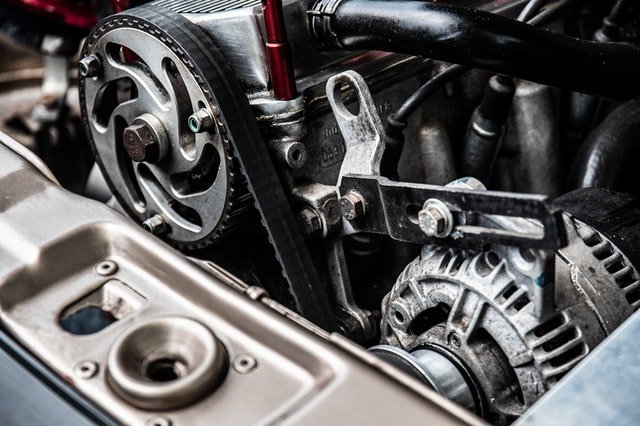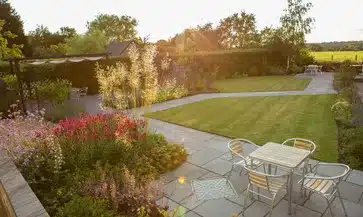The Rising Demand for Household Wind Turbines in South Africa
In recent years, South Africa has seen a remarkable increase in the demand for clean energy solutions. As the climate crisis and energy shortages make headlines, South Africans are turning to alternatives that reduce reliance on traditional electricity sources. Among the popular solutions is the household wind turbine, which has gained traction as a sustainable choice for homeowners. Companies like Pegasus Systems are at the forefront of this transformation, providing individuals and businesses with innovative energy solutions that help South Africa move towards a greener future.
Why Household Wind Turbines are Important
A household wind turbine harnesses wind energy, converting it into electricity suitable for residential use. As South Africa faces frequent power cuts and rising electricity costs, more residents are seeking dependable, renewable sources of energy for their homes. These turbines offer homeowners the chance to reduce energy costs, achieve energy independence, and contribute to a more sustainable environment.
In particular, a small wind turbine for home can produce enough electricity to power household essentials, such as lights, small appliances, and heating or cooling systems. When combined with solar energy or connected to a storage battery, a household wind turbine can offer consistent energy supply, even when the wind isn’t blowing. This potential for off-grid capabilities is appealing to many, especially in remote areas where traditional grid connections may be unstable or unavailable.
Residential Wind Power: A Solution for Sustainable Living
Residential wind power offers a solution for South Africans looking to reduce their carbon footprint and take control of their energy needs. By installing a residential wind turbine, homeowners can lower their reliance on fossil fuels and support the country’s shift toward sustainable energy sources. For those in windier areas of South Africa, residential wind turbines can generate enough power to meet most, if not all, of their household electricity requirements.
Investing in residential wind power also comes with long-term financial benefits. While there are upfront costs involved, wind power is essentially free after the installation of the turbine. Additionally, households can reduce their monthly electricity bills significantly, which offers a considerable return on investment over time. And as energy prices continue to rise, this investment only becomes more attractive.
South Africa’s Renewable Energy Industry
South Africa has one of the most developed renewable energy markets in Africa, with companies like Pegasus Systems offering a wide array of solutions that cater to both residential and commercial energy needs. The country has made strides in adopting wind and solar power as part of its energy mix, with various renewable energy companies in South Africa working to make clean energy accessible and affordable.
These renewable energy companies in South Africa are helping to drive the country’s green energy goals, often collaborating with government initiatives to increase renewable energy capacity. With South Africa’s favorable wind conditions in many regions, South Africa wind turbines have proven effective in harnessing energy and reducing dependency on coal-based power plants.
Benefits of a Small Wind Turbine for Home Use
The advantages of a small wind turbine for home are numerous. Not only do these turbines help homeowners cut down on energy bills, but they also provide a clean energy source that has a low environmental impact. Unlike larger commercial wind turbines, these smaller units are designed specifically for residential use, making them quieter, more compact, and easier to install.
The typical wind generator for home use is engineered to operate efficiently at lower wind speeds, which is perfect for areas that may not experience strong, constant wind. It’s important to choose the right size and model of wind turbine based on the specific location and wind conditions. Working with experienced providers like Pegasus Systems can help ensure that homeowners select a turbine that meets their needs and is optimally suited for the South African climate.
Choosing the Right Residential Wind Turbine
When selecting a residential wind turbine, it’s essential to consider factors such as average wind speed, energy requirements, and installation location. While the upfront cost may vary depending on the type and capacity of the turbine, many homeowners find it a worthwhile investment. There are different types of wind turbines available, each suited for various household energy demands. Consulting with a reputable provider in the industry is beneficial for selecting the right turbine and ensuring a seamless installation process.
Installation costs for South Africa wind turbines have been declining in recent years, making them increasingly accessible to the average homeowner. It’s crucial to work with trusted companies that provide quality products and reliable service. The right provider can offer guidance on installation and maintenance, as well as provide aftercare support. Pegasus South Africa is known for its expertise in this area, assisting residents and businesses in finding sustainable solutions tailored to their energy needs.
How Residential Wind Power Contributes to South Africa’s Energy Goals
South Africa has set ambitious goals for reducing its carbon emissions and increasing its reliance on renewable energy. By integrating residential wind power into the nation’s energy landscape, the country can make meaningful progress toward these objectives. Residential wind power not only helps individual households achieve energy independence but also contributes to South Africa’s overall sustainability efforts.
One of the reasons South Africa wind turbines are becoming more popular is due to their potential to decentralize energy production. In many regions, wind turbines reduce the load on the central grid, allowing it to serve more remote communities without excessive strain. This is particularly important for a country that has faced challenges with power supply and infrastructure in recent years. By adopting wind power at a household level, South Africans are supporting a more resilient, reliable energy system that benefits everyone.
The Future of Wind Power for South African Households
As awareness grows about the importance of clean energy, the demand for household wind turbine systems is likely to increase. The future of wind power for South African homes is promising, especially as innovations in technology make wind turbines more efficient and affordable.













